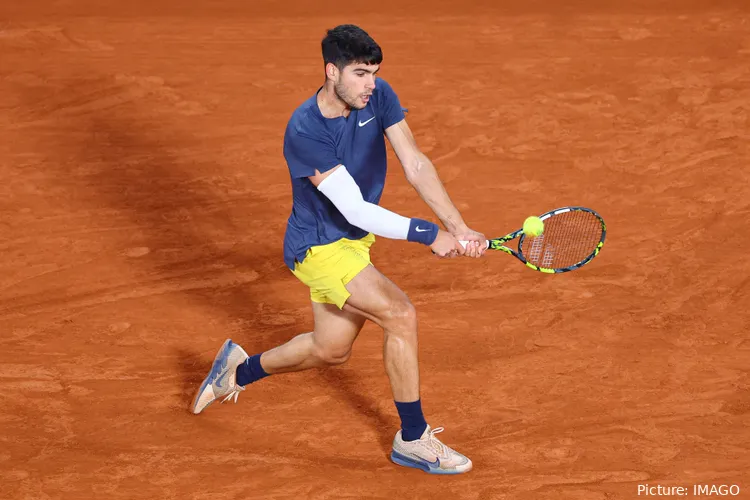Carlos Alcaraz has opened up about his personal dislike for night sessions, citing Novak Djokovic’s recent late finish at around 3:09 AM against Lorenzo Musetti as an example. Alcaraz’s comments highlight the challenges and concerns that players face when matches extend into the early hours of the morning. Late-night matches can disrupt players’ routines, affect their rest and recovery, and pose logistical challenges for tournament organizers and staff. Alcaraz’s perspective adds to the ongoing discussion about scheduling and the impact of night sessions on players’ well-being and performance.
Carlos Alcaraz, who will face Stefanos Tsitsipas, secured his spot in the quarter-finals by defeating Felix Auger-Aliassime 6-3, 6-3, 6-1. Despite his impressive performance, Alcaraz often misses out on playing in the night session due to other players, including Jannik Sinner, being chosen for that slot. While Alcaraz may have to play in the night session in the future, he admitted the challenges that players face with late matches. This acknowledgment highlights the difficulties players encounter with scheduling and the impact it can have on their routines and performance.
Carlos Alcaraz also quipped that Novak Djokovic likely slept at around 6 AM after the latest finish ever at the tournament, which greatly stunts recovery. This comment underscores the significant impact that late-night matches can have on players’ recovery and overall well-being. It highlights the challenges that players like Djokovic face in managing their rest and recuperation after such demanding matches, emphasizing the need for careful scheduling and consideration of players’ health and performance.
It sounds like Alcaraz has a practical reason for not liking night sessions – the demanding post-match routine affecting recovery. He appreciates the special energy of the crowd but prioritizes his physical well-being for upcoming matches.
Alcaraz’s observation highlights the challenges top athletes like Djokovic face with late-night matches and the subsequent struggle to recover with minimal sleep. It emphasizes the importance of managing post-match routines effectively for optimal performance in subsequent matches.
Alcaraz makes a good point about the benefits of finishing matches earlier and being able to prioritize recovery with proper meals and rest. However, he acknowledges the reality of night sessions and emphasizes the need for players to adapt and make the most of those situations to perform at their best.
